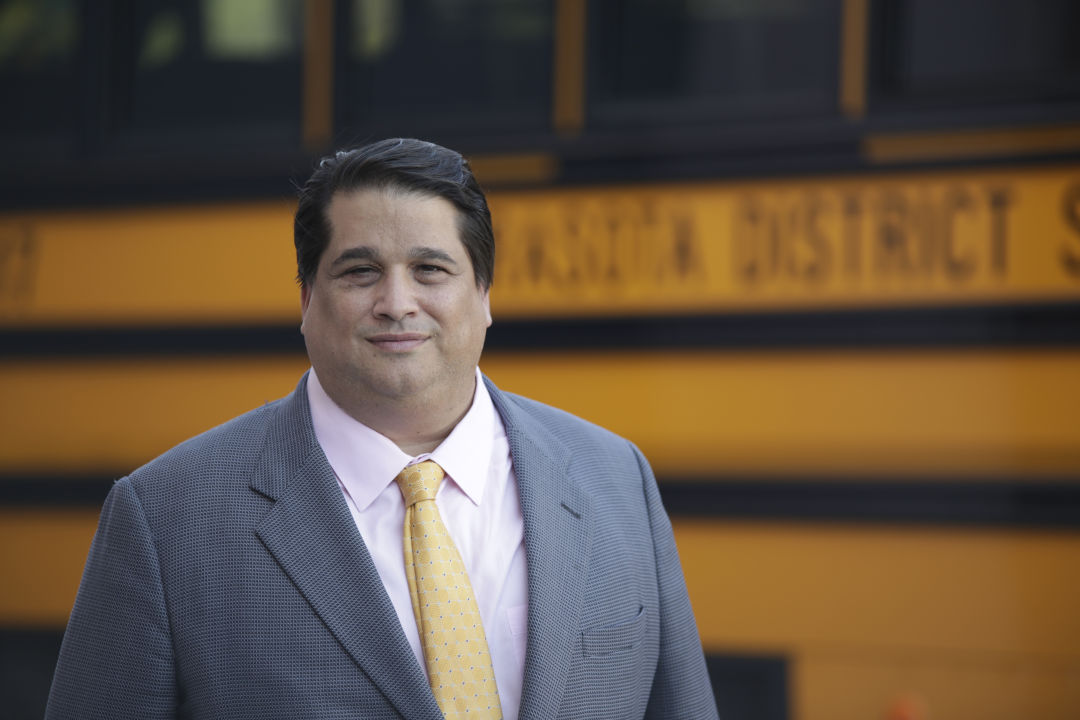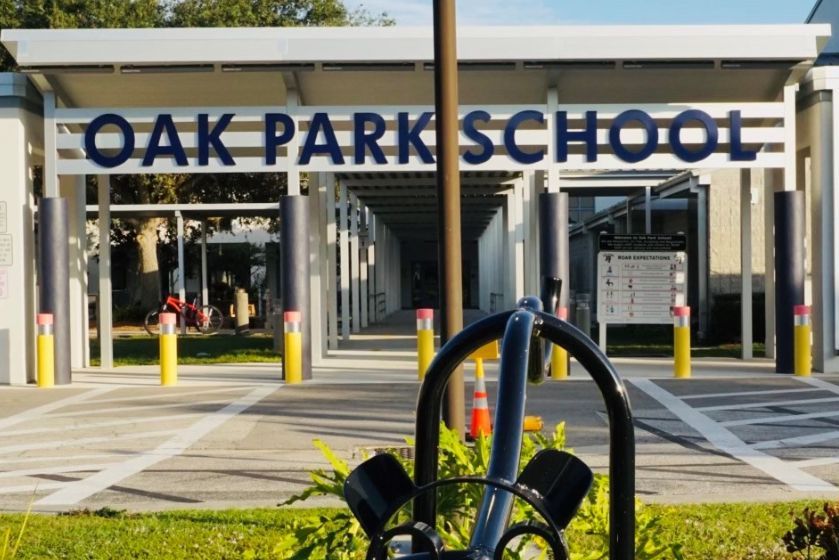Can the "Prince of Darkness" Become a Beacon of Hope?

Eric Robinson
Image: Salvatore Brancifort
Eric Robinson likes to call himself the “Prince of Darkness,” mocking his reputation as the money man behind scores of political campaigns across Florida. Several of those campaigns tarred opponents in mailers with false accusations and hid the names of donors, often land developers and other wealthy businessmen, behind patriotic-sounding, made-up groups such as “Stand for Veterans” and “Working Together for Florida.”
To which Robinson has consistently responded: “I was just the accountant.”
Robinson can no longer say that. In November, Robinson joined the Sarasota County School Board, the first time the former Sarasota County Republican Party chairman has held elected office. Even though he ran unopposed, Robinson raised more than $90,000, more than any other local candidate other than Sheriff Tom Knight. He labored as if he were running for state office, knocking on more than 5,000 doors, attending every school board meeting for a year before the election and visiting every school in the district.
To those who expected Darth Vader, Robinson’s approach may be surprising. The 48-year-old Venice accountant has become the first school board member in anyone’s memory to pledge his $40,000 salary to charities that benefit the district. He is devoting one day a month to working various jobs in the district, including a stint cleaning toilets, where, he says, “I learned that middle school boys need to aim better.”
On one of those shifts, Robinson worked with a janitor who was struggling to learn English. That inspired him to lobby the district to allow some employees to take continuing education classes for free at Sarasota Technical College.
Robinson says the reason he sought a seat on the board is to help solve a problem that has vexed the district for years: the widening performance gap between the district’s white and African-American students.
“There’s no simple solution,” Robinson says. “But I have my grand master plan, and it starts with ending excuses. When the achievement gap comes up, the way the conversation always ends is: You know they’re black, you know they’re poor, you know they come from broken homes. And those are code words for there is really nothing we can do about it.”
Robinson is one half of what may be the region’s most powerful political couple. His wife Christine is both a member of the Sarasota County Commission and executive director of the pro-business group The Argus Foundation. The couple met in Miami in 2000 while volunteering at foster shelters, and they married a year later.
On a recent afternoon, Robinson was sitting at his favorite lunch spot, an organic restaurant a few blocks from his office in Venice’s historic downtown. The tuna melt and turkey noodle soup were growing cold, but Robinson didn’t seem to notice. He was fixated on what he described as one of the most disturbing trends facing Sarasota County schools.
“In 2001, 27 percent of our African-American students in third grade were proficient in reading,” he says.
“By 2014, despite spending millions of dollars, only 14 percent were proficient. Third-grade reading proficiency is one of the most important barometers. You learn to read by third grade and read to learn after that. Those who don’t learn are 60 percent more likely to end up in jail and far more at risk to become homeless and drug addicts.”
Robinson, who favors leather suspenders and open-collared shirts, is stocky, with a full head of black hair. For someone with decades of political experience, he is remarkably unfiltered and often jarringly politically incorrect, as when he referred to the waitress that day who was jousting with him “as a strong black woman.”
Never mind that the waitress was white. “I’m color blind,” Robinson says when that detail is called to his attention. “I don’t see color.”
He can also be impatient. That was evident in his first school board meeting in January, when Robinson stirred up a modest kerfuffle by demanding to know how much the district pays teachers at different schools. Robinson says the budget includes average teacher salaries across the district, which shrouds that teachers at underperforming schools often have less experience and fewer advanced degrees, and thus are paid less.
Robinson’s point was that the district says it wants to close the performance gap but is paying teachers on the front line less than their colleagues at other schools.
After sharp debate, the board voted 3-2 that night against the motion. The Herald-Tribune editorial page later chastised Robinson, saying in a headline that “Eric Robinson needs to learn some diplomacy,” while commending him for seeking such information.
Robinson is undaunted. He says he’s already won one battle, against a policy that allowed non-certified substitute teachers to work in underperforming schools. Robinson says the district told him it struggled to find certified substitutes willing to work in its poorer schools.
“My response is that if you have a certified teacher who won’t teach at the [primarily] black schools, fire them,” Robinson says. “That’s grounds for dismissal. We should not have credited teachers at the rich white schools and uncredited ones at the poorer schools. I got that policy changed.”
School Board chair Caroline Zucker says that closing the achievement gap is a concern of all the board members and has led the district to embrace innovative programs such as helping disadvantaged students and their parents to simultaneously take classes during the summer.
“His lofty goals are no different from what we have had for a long time,” Zucker says, adding that she plans to bring in experts to help the board work together.
Robinson makes no apologies for his hammer-and-tongs approach. Despite being voted down, he says he eventually received the data on how much teachers at schools with large minorities are actually paid. “It took them 10 minutes,” he says, and it confirmed his hunch, he adds, that underperforming schools are actually getting less money than budgeted.
Now, Robinson is asking the district to come up with how the achievement gap in Sarasota County compares with the nation overall.
“I’m a numbers guy,” he says. “I believe that to address the problem, we first need to know where we stand.
It sounds like a simple request, but I’ve gotten a lot of pushback. The district says they don’t have those numbers, but I know they’re out there.”
Robinson says, that “given the wealth and other unique factors that we have here,” Sarasota County’s goal should be to perform better than the national average. Getting the numbers is the first step, he says. Then comes setting goals. He wants those goals written into the performance evaluation of new superintendent Todd Bowden, a change Robinson says faces resistance from the school board.
“Put those goals on him; put them on me, too,” Robinson says. “I’m a doer. And I’m doing this because I want to help achieve things that matter for our children.”



